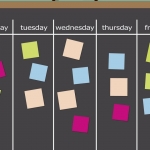5 Novel Ways to Reduce Your Child’s Reading Anxiety
By some counts, more than half of children with ADHD also have a learning disability — and dyslexia is the most common. With the right interventions, their reading improves… but they hate it. Here, learn how to help your child overcome reading anxiety and learn to love books.
“My child just hates reading.”
As an educational therapist, I’ve heard these words countless times from parents of children with attention deficit hyperactivity disorder (ADHD or ADD). For these kids, the act of reading itself may be mentally taxing and unenjoyable. Of course, if they also have dyslexia, it’s key that they receive phonics and fluency intervention. But many of my students have already received interventions and improved their reading skills to grade level — and still, the reading anxiety from their years of struggle remains, and their mental energy just can’t sustain the task.
As an educational therapist, my approach here — in trying to reduce their reading anxiety — is to use their interests, along with available technology. Here are five strategies I’ve found to be effective in engaging students in free-time reading.
-
Find Books Related to the Child’s Interests
I often recommend to students books that I think have intriguing plots and settings, but I’ve found better results by locating books related to their own interests. Makes sense, right? Don’t we feel more confident in tasks when we are already charged by the topic? I once started working with an anxious reader who was a Pokemon fanatic, so I found a Pokemon novel that matched his reading level and his eyes lit up when I presented it to him. If kids are into Minecraft, hand them one of the many game guides. If they’re cat lovers, pick a novel at their level that has cat characters for example.
-
Be Open to Graphic Novels
Parents and teachers may feel graphic novels don’t give students enough reading practice. As an avid graphic novel reader myself, I know that, though filled with artwork, these texts often contain narrative passages on every page complementing the images, as well as plenty of dialogue bubbles. Sure, the amount of actual reading can’t compare to a typical novel, but graphic novels do allow readers to practice comprehension skills that involve analyzing images and synthesizing those with the dialogue and narration. And using the confidence earned from completing these books, we can soon encourage typical novels, ideally in similar genres they’ve already explored. In other words, the graphic novels are like stepping stones.
-
Use Audiobooks Effectively
I’ve seen audiobooks do wonders for students’ confidence in tackling challenging novels. Hearing the words takes some of the burden off their mental energy in processing the language, and studies have shown that listening to audiobooks allows listeners to practice the same language comprehension skills as visual reading. But to be clear, I prompt my students to follow along with the text of the novel while listening to the audio.
For students with ADHD, let’s think of audio books like training wheels on a bike. The kids still learn how to peddle and steer but with some extra support. Eventually, the training wheels are removed and kids balance on their own. I’ve seen students who used audiobooks for a limited period of time and then felt like they didn’t need them any more. Plus, it’s like listening to a movie! And speaking of which…
-
Encourage Books That Have Been Made Into Movies
How much fun to read a book and then see the movie, right? How about letting kids see the movie first and then read the book? You might argue that it would remove the dramatic nature of reading, watching plot twists unfold, enjoying the characters taking sudden actions. But with students with ADHD, I’ve found that students appear more engaged when they already know the main plot points of the story. Again, it’s about confidence. By already knowing a bunch about the plot and characters, they may be easier engaged with the reading because they feel like it won’t be difficult for them to digest all of the new reading input. Also, they may enjoy comparing the book version to the movie as they read.
-
Take Them to the Library
Give them the power to roam around and locate a book for themselves! It’s so much more exciting for them than just looking up books on the web and reading synopses.
With the new school term underway, open your mind up to some new options for your kids’ or students’ reading!
From: Ezra Werb M.Ed for ADDitudemag.com
Ezra Werb is an educational therapist working with students with attention deficits, learning challenges, and spectrum disorders. He is also the author of the newly released book, Teach for Attention! A Tool Belt of Strategies for Engaging Students with Attention Challenges(Free Spirit Publishing).
August 27, 2019



